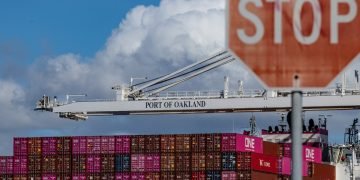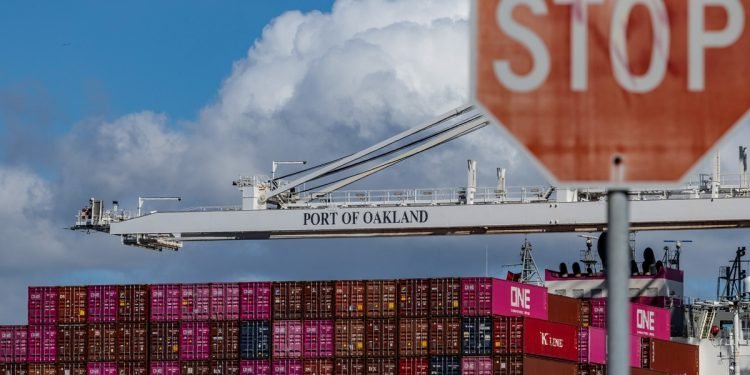By Eva Richardson | The Logistic News | March 25, 2025
Proposals from the Office of the United States Trade Representative (USTR) have ignited strong opposition from logistics and supply chain leaders, who warn the new measures could drive up costs, complicate trade compliance, and inject further uncertainty into already fragile global supply chains.
As the Biden administration pushes forward with revised trade enforcement strategies—focused on labor protections, domestic manufacturing, and environmental compliance—industry stakeholders argue that the unintended consequences may outweigh the benefits if policies are not carefully implemented.
A New Phase of Trade Enforcement
The USTR’s latest proposals aim to modernize U.S. trade policy by incorporating stronger labor rights enforcement, increased scrutiny of environmental and social standards in supply chains, and a more assertive approach toward non-market economies—particularly China.
While these priorities align with broader political goals and ESG expectations, critics say they could create compliance burdens, restrict sourcing flexibility, and raise the cost of doing business internationally.
“While we support ethical and sustainable trade,” said one logistics executive anonymously, “these rules must be operationally viable—otherwise, they risk creating more disruption than progress.”
Supply Chain Complexity in the Crosshairs
The concerns come amid an already volatile logistics landscape, where supply chain managers are navigating geopolitical instability, freight market fluctuations, and shifting consumer demand. Industry groups like the National Retail Federation (NRF) and the National Association of Manufacturers (NAM) have formally submitted objections, citing the risks of redundant reporting requirements, potential delays at customs, and restricted access to strategic materials.
A key issue is the proposed expansion of due diligence mandates that would require importers to trace product origins and labor conditions deep into multi-tiered supplier networks—something that many companies say is impractical without uniform global standards or sufficient digital infrastructure.
Cost Pressures and Trade Flow Impacts
Opponents also argue that the USTR’s approach could fuel inflationary pressure. By tightening sourcing rules and imposing enforcement-related penalties, companies may be forced to shift suppliers, reroute cargo, or face fines, all of which can translate to higher landed costs—especially in retail, electronics, and automotive sectors.
“Logistics doesn’t happen in a vacuum,” said a senior supply chain analyst. “When regulations change abruptly, the ripple effect touches transportation contracts, warehouse capacity, and final-mile pricing.”
Calls for Industry-Government Collaboration
In response to the backlash, several trade and logistics coalitions are calling for more structured dialogue with the USTR, proposing advisory committees, public-private forums, and transitional timelines that would allow companies to adapt without operational shocks.
Many also recommend aligning U.S. trade compliance requirements with existing frameworks like the WCO SAFE Framework or the OECD Due Diligence Guidelines, to reduce duplication and improve interoperability across markets.
A Divided Outlook for 2025
As of March 2025, the outcome remains uncertain. The USTR has indicated it is open to revisions, but maintains that trade enforcement cannot be compromised in the name of convenience.
Meanwhile, industry stakeholders are preparing contingency plans—including sourcing diversification, compliance software upgrades, and stakeholder education—to navigate potential changes.
Final Thought
Trade policy is no longer a backdrop to logistics—it is a direct operational driver. The USTR’s proposals may serve noble goals, but without practical engagement from the logistics sector, they risk disrupting the very networks they aim to strengthen.
For now, the message from supply chain leaders is clear: collaboration, not confrontation, must guide the path forward.
Eva Richardson
Senior Correspondent, The Logistic News























